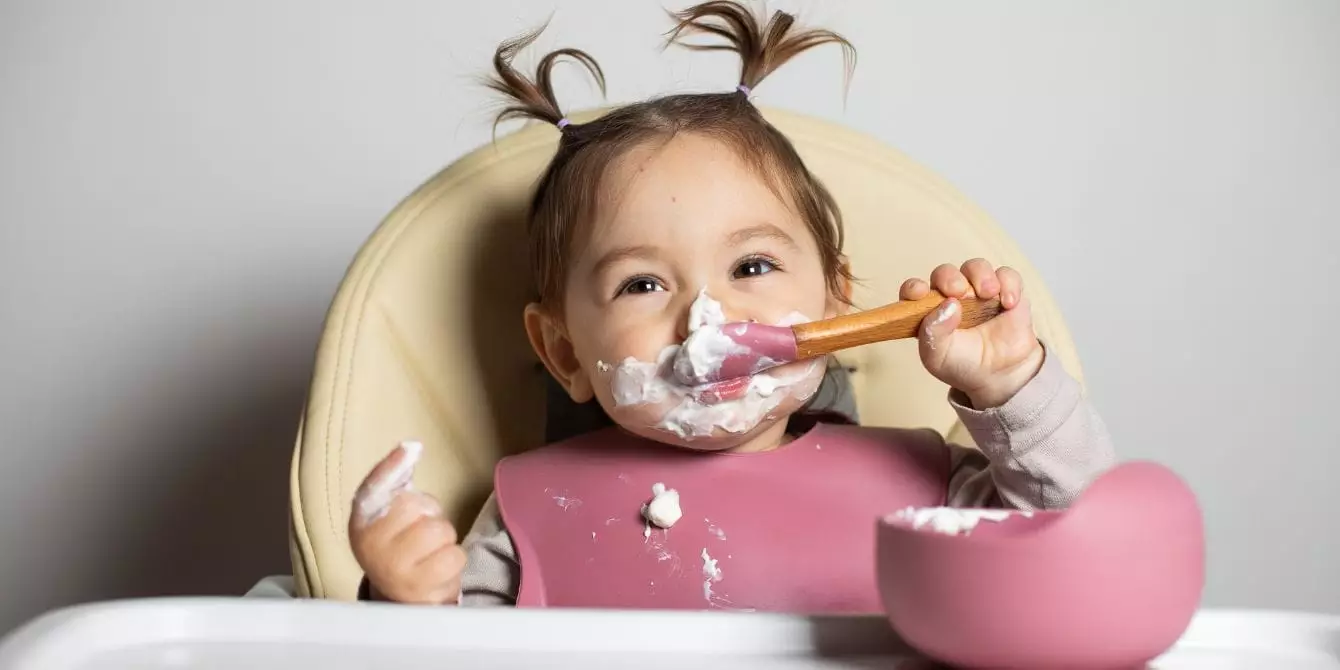As a parent, witnessing a toddler gleefully attack a bowl of cereal can be both a delightful and anxiety-inducing experience. There’s a unique charm to the way toddlers engage with food, often resulting in a delightful chaos of spilled milk and scattered Cheerios. This scenario is emblematic of a larger principle known as responsive feeding (RF), which champions the child’s autonomy in exploring food. However, what many may overlook amidst the grains of cereal strewn across the floor is that these experiences are rich with opportunities for growth. As both a parent and an advocate for nurturing healthy eating habits, I believe it’s critical to embrace the messiness that comes along with this developmental phase.
Children’s culinary adventures are not purely about sustenance but also about forging a connection with food. Responsive feeding recognizes this intricate dance where toddlers interact with their meals, culminating in a sensory exploration that should be cherished. It’s the glorious chaos, characterized by sticky fingers and giggles, that builds a foundational relationship with food, one that marries nutrition with curiosity.
At times, the spontaneity that accompanies feeding toddlers can border on overwhelming. The notion of letting children explore food and make a mess can be a hard pill to swallow, especially for parents accustomed to a tidy dining experience. However, it’s important to realize that this chaos plays a vital role in their development. Engaging with food through tactile play enhances motor skills and cultivates an inquiring mind. Each little experiment—whether it involves squishing peas or flinging pasta—contributes to their understanding of the textures, flavors, and joy that food can encompass.
Research has revealed that overly strict parenting regarding messiness can hinder a child’s self-feeding capabilities. Children thrive in environments where they are encouraged to explore without constant interruptions or corrections. The occasional splatter on the wall or remnants stuck in a child’s hair should not be seen merely as frustrations but rather as integral parts of their growing independence. By granting them the freedom to engage and explore, we cultivate an atmosphere ripe for cognitive and physical development.
To combat the hesitation around mess during mealtime, preparation makes all the difference. Parents can simplify their lives by creating an inviting atmosphere that is conducive to self-discovery. Employing wipeable mats or mess-resistant utensils can ease concerns and enable toddlers to enjoy the process of eating even more. However, easing parental anxiety does not imply the absence of guidance; rather, it requires a shift in mindset towards allowing children to direct their exploratory endeavors.
Encouraging your toddler to partake in their own cleanup can also be immensely empowering. Providing them with a cloth or napkin to wipe their hands or the table increases their sense of participation and reduces the overwhelming nature of cleaning for parents. This approach fosters collaboration rather than creating a divide between parent and child.
One vital aspect of responsive feeding is recognizing the line between guidance and control. While it’s tempting to steer a child’s gastronomic journey with structured activities like creating art from food, such measures can inadvertently transform meals into performances rather than pleasurable experiences. Instead of presenting meticulously crafted fruit sculptures that require tasting, the emphasis should be on letting the child explore food at their own pace.
The art lies in observing our children and supporting their instincts, rather than directing their actions. We must practice the patience to appreciate their individual engagements with food, even if it manifests as a tower of mashed potatoes or an array of cereal toppings destined for the floor. Each messy exploration is not a sign of failure but a celebration of their emerging autonomy and creativity.
As we encourage our toddlers to explore the world of food, it’s essential to embrace the messy process as an integral piece of their development. When we shift our focus from cleanliness to exploration, we cultivate an environment where children feel free to innovate and learn through experience. Every spill signifies a step toward the development of a healthy, adventurous eater filled with curiosity.
Welcoming the delightful pandemonium of responsive feeding allows us to nurture confident and self-assured eaters. Let us celebrate the myriad of experiences that come with parenting during mealtime—each splash and smear an opportunity for learning and connection. By letting go of the desire for perfection and relishing the untidy beauty of feeding, we pave the way for our children’s lasting love of food and exploration throughout their lives. Embrace every moment of this delightful journey, and let it not be clouded by the challenges of cleanliness, for the rewards are truly immeasurable.

